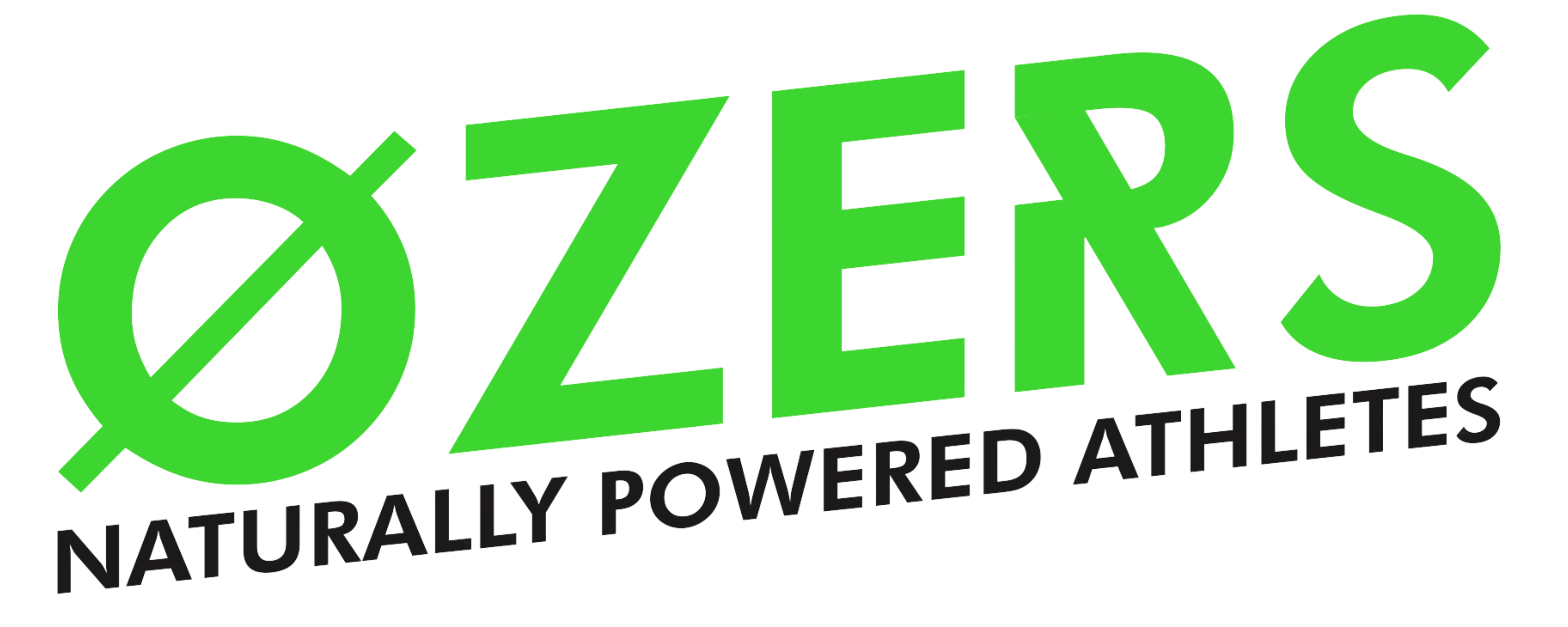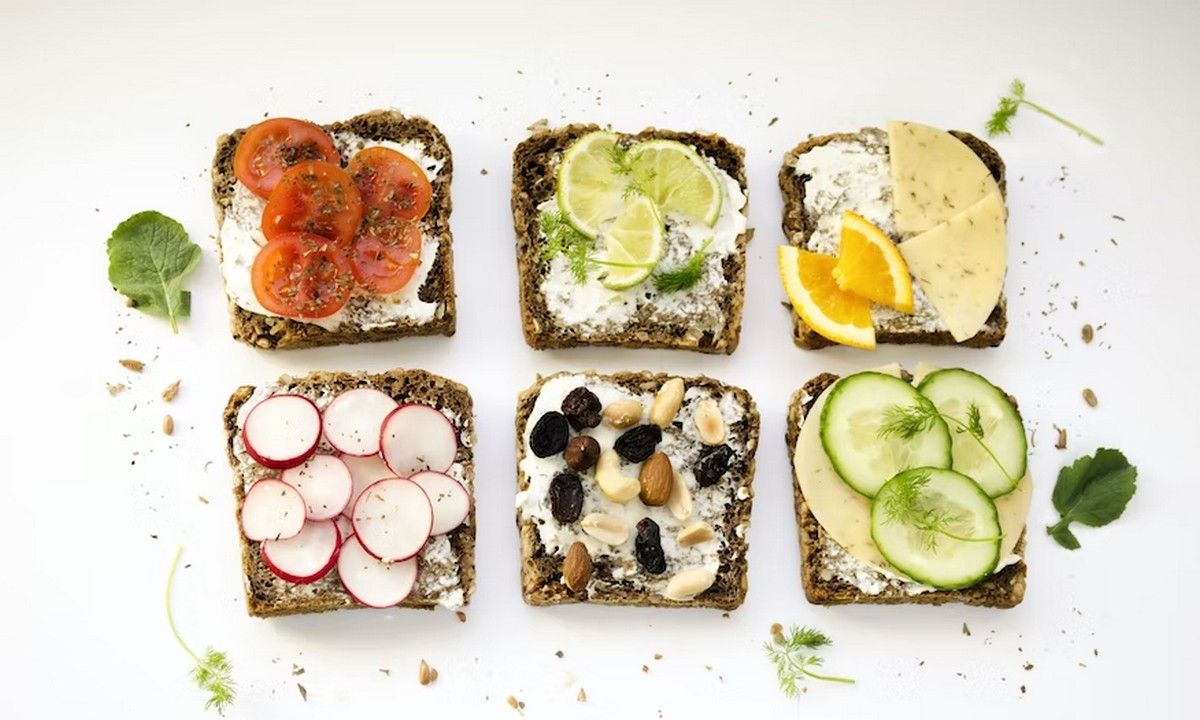Wait. Boost what?
Metabolism is defined by all of the body's biochemical processes to create and expend energy to sustain your body .
When you eat an apple, your metabolism extracts its nutrients (called catabolism), then synthesizes them and sends them to the cells that need them to function (called anabolism).
There are two types of metabolisms: slow metabolisms and fast metabolisms .
We then speak of basic metabolism to describe energy expenditure, that is to say the act of burning calories to fuel organs and cells.
What is a calorie? It is energy that you extract from food, that you transform and that you use to make your body function.
Basal metabolism represents the amount of energy you expend to support your vital functions.
To boost metabolism , and therefore increase your energy expenditure , you can play sports, consume plant proteins , but also change your diet so that it becomes less caloric.
What is metabolism?
Metabolism describes the different transformations that take place in the body and which are called:
- catabolism which is the process of destroying food in order to produce energy;
- anabolism which is the construction process which synthesizes energy to send it to the cells and ensure their functioning.
We often use the term “metabolism” to talk about energy expenditure. But it would be better to talk about basal metabolism (MB).
This basic metabolism qualifies the body's incompressible energy needs , that is to say the quantity of energy you must expend to stay alive (what?!).
Yes, your body is constantly producing energy to power vital organs (like the heart and brain) and carry out body functions (breathing, etc.).
These energy needs are calculated using the unit of measurement which is the kilocalorie (kcal). It also allows you to know the amount of energy contained in a food.
For example, 100 grams of apple is equivalent to 52 calories. You therefore know that your body will consume 52 calories which it will burn immediately if you need them or which it will store if your energy needs are met.
Your metabolism has specific needs that depend on your age, gender and height. Having a high-calorie diet (you consume more calories than you need) promotes weight gain.
On the contrary, a low-calorie diet (you consume fewer calories than necessary) promotes weight loss. The metabolism accelerates to burn calorie stores and reduce body fat.
This is how your body and its metabolism work!
Slow Metabolism vs. Fast Metabolism
There are two types of metabolism.
Slow metabolism
Slow metabolisms work in slow motion. They take longer to transform energy and distribute it to cells. Signs of a slow metabolism are:
- rapid weight gain;
- fatigue (especially after meals);
- a lack of energy;
- headaches ;
- sugar cravings;
- dry skin, brittle nails or hair loss.
The reasons for a slow basal metabolism can be genetic, hormonal or pathological.
Illnesses like diabetes slow down the functioning of the body. A hormonal imbalance can also slow down energy expenditure.
Before you panic and cry diabetes , learn to listen to your body. A slow metabolism doesn't mean you're unhealthy. You can always ask your doctor for advice.
Fast metabolism
If you have a high basal metabolic rate , your body burns calories faster than someone with a slow metabolism.
Again, rapid metabolism is influenced by age, weight, hormonal function and level of physical activity.
Signs of a rapid basal metabolism are:
- difficulty gaining weight;
- high body temperature;
- a great appetite;
- a frequent need to go to the toilet;
- rapid digestion.
To find out what your basic metabolism is, listen to your body and notice signs of slowness or speed in digestion, for example. You can also monitor your body temperature, because metabolism influences body temperature.
Note that you do not necessarily maintain the same type of metabolism throughout your life. As said above, basic energy expenditure increases or decreases depending on age, weight, height, gender and even lifestyle.
With age, we store energy more easily and use it less. Practicing a sporting activity and adapting your diet are part of the solutions to boost your metabolism.

How the basal metabolism works
Basal metabolism is the minimum activity that your body provides to ensure its vital needs (organ functioning, maintenance of body temperature, cell renewal, muscle activity, etc.).
Our basal metabolic rate depends on the amount of energy we expend while awake, fasting, and at normal temperature.
The more muscle you have, the bigger you are, and the more energy you need to power your cells.
This is how the basal metabolism works:
If you consume exactly the number of calories per day that your body needs, you will maintain a normal weight.
If you consume fewer calories than you expend, you lose weight.
If you consume more calories than your body needs to function, you store them in adipose tissue as fat. In the long term, you gain weight.
It's all a question of balance . It is possible to speed up the metabolism by practicing regular physical activity and doing weight training, for example.
Factors that influence energy expenditure
Several factors influence the amount of energy you need to expend each day. The main ones are:
- age (young people expend more energy, but this caloric expenditure stabilizes in adulthood before declining with old age);
- gender (in theory, men have a faster metabolism due to their more developed muscle mass than women);
- physical activity (the more muscular the body is, the more calories it expends, even at rest);
- height and weight (the bigger you are, the more energy you expend).
Other factors impact your basal metabolism such as sleep , diet or genetics .
Also note that weather conditions can make you burn more calories (when it's cold for example), as can emotions . A stressed and anxious person consumes more energy than a calm person.
|
Good to know : You also expend energy when you carry out intellectual activity. Talking, thinking and reflecting burns calories! But (we see you coming), physical and sporting activity remains the best way to boost your calorie expenditure. |
Why increase your metabolism?
You can increase your metabolism to lose weight , stabilize it or get in shape.
If you are suffering from fatigue, lack of energy or recurring migraines, boosting your metabolism can only do you good.
The goal is to find your balance to achieve your goals (lose weight, build muscle, stay healthy, etc.).
The 6 tips to boost your basic metabolism
OK, now that we understand a little better what metabolism is, how do we increase it? How to speed up your energy expenditure?
There are several ways to boost your energy expenditure . But the first thing to do is to take stock of your situation.
Ask yourself what your goals are, what your metabolism type is, if your diet is adapted to your energy needs, if you are sedentary or if you already practice physical activity...
The following tips depend on you and your needs: take the best ones for your situation and increase your basal metabolism!
Practicing a sporting activity
There is nothing more effective for boosting your metabolism than moving. Exercise, do sports, walk, activate your body and its functions to eliminate calories .
Cardio training activities are ideal for engaging all organs and expending energy. Running, crossfit or fitness are effective sports for losing weight, because they increase energy expenditure more quickly.
Certain sports are better for losing weight, because they make you expend more energy quickly than other practices.
⇒ Crossfit is a faster calorie burner than swimming.
Performing strength training exercises increases your muscle mass and therefore boosts the speed of metabolism. The more muscles you have, the more energy-consuming they become. The body burns calories during physical exercise, but also at rest.
Balance your diet
To boost your basic metabolism, you need to look at your plate. Food plays a fundamental role in energy expenditure, since it is the source of energy.
If your goal is to lose weight or fat, adopt a low-calorie diet. Consume less energy so your body digs into stores and burns fat.
Be careful, consuming fewer calories does not mean adopting a draconian diet based on rice grains. Just make sure to rebalance your diet to eat healthy and varied foods.
Remember to meet all your dietary needs: your energy intake, your vitamins, your minerals, etc.
Eating less to lose weight is not always the right solution: you must favor certain foods, such as vegetables, and reduce others (such as refined sugars).
Consume protein
Ah proteins! Their role is quite vague for a number of us. Yet protein is essential for building and maintaining muscle fibers . They are also ideal for increasing energy expenditure .
Proteins require a lot of energy to be digested and assimilated. Their consumption therefore increases the metabolism.
You can consume animal proteins (eggs, meat, fish) or plant proteins (beans, mushrooms, soy, etc.). The advantage of plant proteins is that they are digested more easily and avoid feelings of heaviness or bloating after a meal.
The best vegan proteins for gaining muscle mass will be spirulina (the favorite algae of athletes), seeds , nuts , beans and legumes .
High protein diets can accelerate the basal metabolism and promote weight loss. But be careful of excesses and consequences. Eating too much animal protein, for example, can lead to chronic inflammation and health problems (osteoporosis, etc.).
The rule is the same: balance . If you are not vegetarian or vegan, vary your protein sources. Those of plant origin are better for health in the long term and in large quantities than proteins of animal origin.
⇒ Get your protein intake with the post-workout shaker made from 100% plant-based proteins.
Drink enough water
Drinking enough water during the day naturally increases metabolism.
When you drink half a liter of water, your body increases its energy expenditure by around 30% according to a study published in the Journal of Clinical Endocrinology & Metabolism.
Drinking 2 liters of water per day would increase caloric expenditure by 400 kJ (or approximately 95 kcal).
Water is a thermogenic substance.
When it is ingested, the body uses it to generate heat. It then burns a large amount of energy which is found in fat deposits.
Drinking water can therefore help you lose weight thanks to the many calories burned.
|
Good to know : This study also reveals that, in men, lipids increase the metabolic rate, while in women, carbohydrates are used as the main source of energy. |
Limit sugar
If you want to increase the amount of calories burned per day… Limit your sugar intake.
Consuming excess sugar increases insulin production. The problem is that this hormone promotes the storage of fat in the tissue.
Pay attention to your eating habits . Consume complex carbohydrates which require more effort during digestion. Fast sugars require almost no energy. So you don't increase your metabolism when you consume them.
Complex sugars, such as grains and starchy foods, increase calorie consumption.
Sleep well
Quality sleep is the key to a balanced metabolism.
Professor Damien Léger, sleep specialist, explains that a reduction in sleep time modifies the balance of hormones involved in the regulation of sleep and in energy metabolism .
Growth hormone regulates the ratio between lean mass and fat mass. It reduces cholesterol. But a reduction in sleep time decreases the production of this hormone and can increase body fat .
Sleeping 7 to 8 hours a day is recommended. A 30-minute nap can counteract the negative effects of lack of sleep (it's time to get on the couch!).
You know all the tips to boost your metabolism. All you have to do is take action and give your body a boost to increase its energy expenditure!




